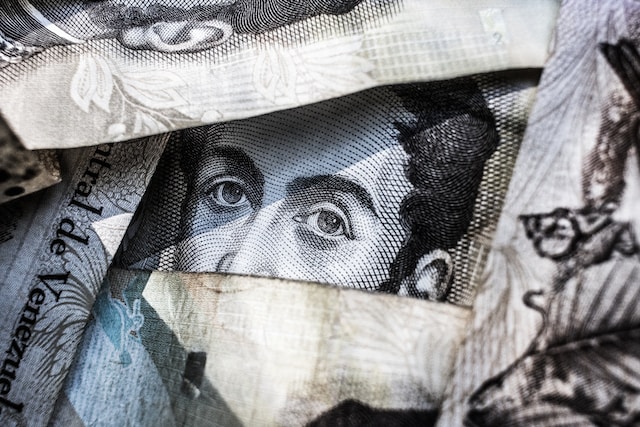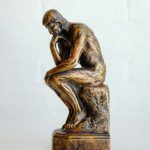

The Power of Money
Do you have limiting beliefs about money? You can take quizzes online that supposedly decipher your money personality and disclose your limiting beliefs about money. I have tried several of these quizzes and they are interesting. But I don’t think they are especially effective in giving you insight into your emotional connection with money.
Money. We all need it to survive, to pay our bills; but your own limiting beliefs about money could produce an emotional power over you that prevents you from using it effectively. And you may not even be aware of this power. Your beliefs about money can be a positive or negative energy. To ‘attract’ abundance to yourself, strive to have positive beliefs about money.
I think almost all of us would like to have more money, both by earning more and by saving more and we want to have those things that money can buy. At least we think we want certain things. You may actually want to get rid of some stuff before you plan on buying more. See How to Minimize – Painlessly Declutter Your House in 7 Steps. We especially want to be free of bill-paying worries.
Table of Contents

Empower A More Rewarding Life
But before you can effectively earn, save and buy with success, a few cobwebs may need to be cleaned out of your thinking and emotional brain cells.
So in this post I will attempt to do just that. I want to help you think about what money truly means to you, both in a practical and an emotional sense.
Being clear about these things could be life-changing and could empower anyone to move to a more rewarding life.
First, think about this statement: Money touches every part of our lives in some way. Do you agree? I think that is why it is so important to clear up any limiting beliefs about money.

What Money Can Do
First, I am going to list some of the things that money can buy: (you can add to this list)
• Basic necessities: (food, clothes, shelter, health, transportation, utilities)
• Extras: (more clothes, jewelry, electronics, gadgets, time-saving devices, maids, helpers, furnishings, hobby supplies)
• Experiences: vacations, movies, concerts, restaurant eating, outings with friends, education, hobby activities, family outings)
• Time: less housekeeping drudgery, fewer workplace hours
• Freedom from some problems and worries: car repairs, health insurance, mortgage, taxes.
• Giving: Ability to give more to friends, family and charities

What Does Money Mean to You?
Let’s Explore Some of the Common Beliefs About Money. Consider which beliefs apply to you.
• Security. You feel that the more money you have in the bank, the more secure you will feel overall. You feel good about having a cushion for a rainy day.
• A Dream. You keep trying to win the Lotto jackpot. It would be such an easy way to end your money concerns.
• Ignorance. You would like to put your head under your pillow and not be responsible for money issues. Any task surrounding your finances seems too daunting and distasteful.
• Responsibility. When you think of money, you feel responsible for giving your family and yourself a healthy and protected lifestyle. A lifestyle of quality and beauty.
• Self-esteem. Having a certain amount of money may make you feel better about yourself in relation to your past self or in relation to others.
• Power. You may feel that being wealthy will give you more power in all aspects of your life.
• Success. Money can also signify success to you. In other words, to be successful without money is not really success at all.
• Happiness. Money will help to make your dreams come true. Do you feel that you won’t truly be happy without money or without the things money can buy?
• Judgment. You feel that money is evil and those who are rich are usually bad, and that a person can rarely be virtuous and wealthy at the same time.
• Fear. You believe that having too much money will make you greedy or selfish. Money is corrupting. You fear you might become an Ebenezer Scrooge.
• A Struggle. You never have enough. You are struggling to make ends meet.
• Neediness. You have the need to take steps to earn more, cut expenses, and attack looming debt.
• Nothing. Money means very little emotionally to you. It is merely a tool to be used wisely or foolishly. Money can be used for good purposes or it can be used for harmful purposes.

Limiting Beliefs About Money – The Self Test
Well, here is my version of the money personality quiz. It is a questionnaire that will further help you to assess your relationship with money. The quiz may point out your limiting beliefs about money. No need to add up your score. Simply think about your answers to get some insight about your own relationship with money; because if you want to have a full and balanced life you must come to terms with these important questions.
Answer quickly and honestly, and rate your answers as follows:
1. Do not agree at all
2. Agree somewhat
3. Agree mostly
4. Strongly agree
1. I only require enough money to take care of the basics. I enjoy a very simple and frugal life.
2. Money is important to take care of the basics plus plenty of extra frills — the more the better.
3. I don’t feel worthy enough to enjoy financial blessings.
4. Money is valuable because it provides life-enhancing experiences with friends and family.
5. If I had more money I would love to quit my job and have time for the things I really want to do.
6. If I had more money I wouldn’t have to worry so much about paying bills, or how I will be able to afford important things like a good car, or my children’s education.
7. I am confused about household finance. I fear I don’t have a good handle on how my money is coming in and going out.
8. I fear that ‘things’ feed a constant emptiness in me that cannot be satisfied.
9. Money is the root of all evil and to have only as much money as you need is noble and virtuous. The rich tend to be greedy people who just want more and more.
10. I sometimes tend to be a shopaholic and find it hard to control spending.
11. I love to purchase beautiful things for myself, my family and my home, but I don’t go overboard and I stick to my budget for the most part.
12. If I could earn or save more, I would love to give more to my favorite charities.
13. As a child my parents/guardians (rate each option)
• Were very frugal
• Did not buy many toys for me.
• Taught me how to stretch a dollar.
• Did not talk to me very much about money or household finances.
• Explained the concept of budgeting.
• Encouraged me to copy their behavior with money.
• Made me feel well-provided for.
• Gave me an allowance
• Suggested I find jobs to earn personal money.
• Insisted that I work to earn money.
• Bought me material things when I asked for them
• Lavished me with expensive toys, clothes and trips.
• Gave me more time and love than money.
• Indicated to me that talking about money or one’s income was taboo.
• Add your own recollections:_____________________________
____________________________________________________________________________________________________________________________________________________________________________________
14. As an adult, I equate money with (rate each option):
• Security
• Responsibility
• Self-esteem
• Power
• Success
• Happiness
• Tool to use wisely or foolishly
• A way to help others
• Judgment
• Fear
• Ignorance
• A Struggle
• Add your own:_______________________________________________
________________________________________________________________________________________________________________________

Evaluate Your Limiting Beliefs About Money
As I said, there is no need to add up your score. Give yourself some time to think carefully about your answers. Hopefully this quiz has disclosed your personal limiting beliefs about money and will help you change them into positive ones.
Come to terms with any emotional problems you have with money and try to take a more objective and practical view of your personal finances.
And remember:
• Don’t be afraid to spend the money you’ve been blessed with
• Don’t be afraid to get used to saving and living within your means

Money is A Tool – How to Use it Wisely
After you have mulled all of this over, the next step is to consider and plan just how you want to use your money. Money is a tool that you can implement as you wish. I am sure you work long and hard for your earnings, so consider carefully just how you want to use this tool. Here are some of the main spending categories:
• House and home: your house or apartment and its furnishings
• Food and Clothing: All the basic necessities
• Health Insurance or Health Savings Account
• Security: Home, Life, and other types of insurance
• Family Car(s)
• Education
• Entertainment, Travel, Hobbies
• Toys for children
• Contributions to non-profits, charities, faith institutions
• Emergency Savings
• Retirement Savings
• Savings for a specific goal
• Additional Categories _________________________________
___________________________________________________
Decide exactly what you want to do with your money; then you will better be able to take the practical steps to carry out your plan.
Using the above categories, make the wise decision to employ a specific budget plan to organize your finances. Budgets are useful no matter how much money you have.
Or if you already have a budget, go back to it and make any updates you feel are necessary.
As you work on your budget, keep in mind your past limiting beliefs about money so they don’t crop up and impede your work.
Remember, understanding your limiting beliefs about money and organizing your finances are integral to having more life and a better life.

Budget Smart
Review your action steps:
• Evaluate your own money personality
• Come to terms with any emotional issues you have with money
• Decide how you want to use your money
• Draw up or review your budget plan

Wrap It Up
Were you surprised by what you learned about your money personality? Even if you weren’t surprised, I hope this discussion enlightened you and encouraged you to think clearly about your limiting beliefs about money.

